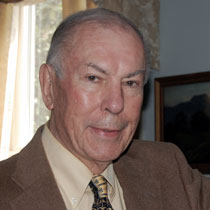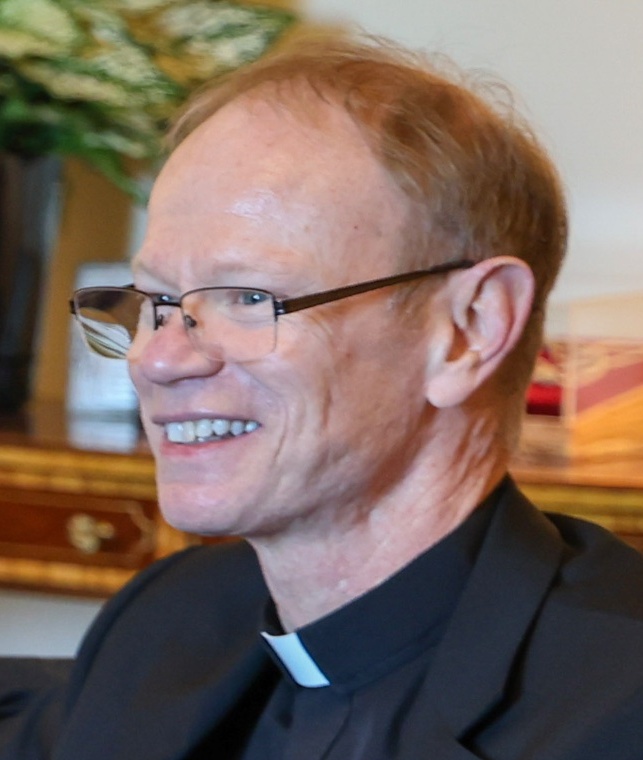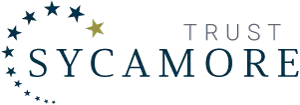Introduction
Despite repeated petitions from student leaders and without explanation, the University of Notre Dame continues to permit unrestricted access to the tsunami of pornography it provides students through its Internet service.
This raises a serious question about Notre Dame’s complicity in the spread of a grave evil. The Catechism and Vatican teaching unequivocally reject pornography as a sin that degrades human dignity and fosters vice. Yet, the University of Our Lady acts as a digital middleman in the distribution of this poison.
In this bulletin, we focus on the administration’s recent denial of a second petition sponsored by the student organization SCOP (Students for Child Oriented Policy) for a pornography filter on the University’s Internet service. The administration will not answer our question why this facilitation of sin is not morally illicit under established Catholic teaching.
We invite you to judge for yourself. If you agree with our view, we hope you will sign the appended Open Letter to Father Dowd asking him to reconsider and grant the students’ petition.
Exchange between Bill Dempsey & Father Dowd

Response:

Background
With the advent of the Internet, the pornography industry has exploded into a global exploitation behemoth. Commercial market analysts value the industry in the hundreds of billions of dollars. The tech-driven pornography industry offers a “Triple-A“ pornography experience — anonymity, affordability and accessibility – to anyone with an Internet connection. Pornography has reshaped the moral battlefield of the digital age.
Pornography is notoriously habit-forming, and legions of college and university students are hooked. A 2015 study of a number of campuses disclosed that 87% of men and 31% of women were consumers. And now an ever more addictive sexual fantasy world is available through Virtual and Augmented Reality technologies, which “offer immersive and interactive experiences that transform how content is consumed.”

Pornography at Notre Dame – The University as Supplier
Who opens the door to this cesspool for Notre Dame students? Why, the University does through its Internet service. It could block it. But it does not.
A great many students take what the University offers. As Notre Dame men seeking a filter reported, “A survey conducted in 2013 showed that 63 percent of male Notre Dame students have viewed pornography on the university Wi-Fi network.”
The link between pornography and sexual assault should be of special concern. “Study after study has shown that consumers of violent and nonviolent pornography are more likely to use verbal coercion, drugs, and alcohol to coerce individuals into sex.” And a 2024 survey of just under 40% of the student body disclosed that there were about 50 rapes at Notre Dame during the previous school year, or more than one a week. The figure would obviously be substantially higher for the whole student body.
Nevertheless, those in governance are allowing the transmission of this moral poison to students quite deliberately.
Father Jenkins turned down a SCOP petition to interdict pornography in 2019, and now Father Dowd has followed suit. The episodes generated considerable publicity. Surely both the Fellows of the University, who are charged with “ensur[ing] that the University maintains its essential character as a Catholic institution,” and the Trustees know what the administration is doing.

Church teaching
The relevant Church teaching is clear and we think dispositive.
Pornography is among “the sins gravely contrary to chastity,” as is masturbation (Catechism 2396).
Lust is also a sin against chastity (Catechism 2351) and has long been included among the Seven Deadly Sins by the Church
Pornography “perverts the conjugal act, the intimate giving of spouses to each other,” and “does grave injury to the dignity of its participants (actors, vendors, the public)” (Catechism 2354).
The Vatican has declared the transmission of pornography by the Internet “digital violence” (Dignitas Infinita), and Pope Francis has spoken of Internet pornography sites as places where “the devil works.” Internet pornography, he declared, speaks “the language of the devil.”
And in a sweeping denunciation, the Pontifical Council for Social Communications declared pornography
debases sexuality, corrodes human relationships, exploits individuals – especially women and young people – undermines marriage and family life, fosters antisocial behavior, and weakens the moral fiber of society itself.
Accordingly, and much to the point, the Catechism declares:
Civil authorities should prevent the production and distribution of pornographic materials.
It would give new meaning to the term “religious exemption” were the Church to urge banning the distribution of pornography by secular agents but permit it by religious institutions.
It should be blazingly clear from this, we think, that the University’s funneling porn to students is morally unacceptable. The production of pornography depends upon the degradation of women and the most monstrous sins against chastity, and its sole purpose and effect at Notre Dame is to arouse lust and sinful sexual self-gratification among Notre Dame students. And sometimes probably fornication and perhaps sexual abuse.
The connection between the provision of porn and the consequent sin is so close that, in terms of Catholic moral theology, we believe it to be “proximate material cooperation” with sin (if it is not “immediate material cooperation”), which can never be justified.
And in such cases scandal is often an aggravating factor, as it is here. Students pulled toward porn are liable to discount the University’s preaching by its action in repeatedly denying student requests that it stop delivering porn.
But even if the University’s provision of porn were considered “remote material cooperation” (and we do not see how it could be), there would have to be “a proportionately serious reason to justify tolerating the evil.”
We turn, then, to what the University has had to say about why it continues to provide pornography to students.
And what it has not had to say.
The Administration’s Infirm Private Explanations and Resolute Public Silence

SCOP published a memorandum about its meeting with Father Dowd and two others in which it described reasons they advanced for denying its petition.
- The first is both repugnant and weightless:
Notre Dame must protect her standing as an elite research University, which is threatened by a restriction on Internet access.
Since an exception for research could be offered, as the students pointed out, this objection falls. In any event, the notion that protecting Notre Dame’s reputation as an “elite” University justifies providing students pornography is offensive.
- The second reason is irrelevant:
Students seeking porn could always access it through their own cellular data or hotspot.
Certainly, but so what? It’s the University’s culpability, not the students’, that’s in question.
The gun dealer who provides a weapon to a known bank robber or someone who provides heroin to an addict is not off the hook because someone down the street would have done the same thing.
- The third reason, too, is beside the point. The University representatives pointed to the University’s “pastoral approaches helpings students build virtue.” But, again, so what? The gun dealer and the heroin supplier will not be heard to protest that the one supports the police and the other a drug rehabilitation program.
- Finally, the reason ascribed to Father Jenkins by a “source familiar with the matter” — lack of majority student support — is morally impoverished. It might as well be about student parking privileges.
Nor, we add, does Notre Dame’s frequently invoked explanation for countenancing contradictions to Catholic teaching – an absolutist notion of academic freedom — have any role here. Pornography is the antithesis of truth and goodness, the ends toward which free and open inquiry are directed.
We wanted to be sure the administration would not dispute SCOP’s memo, and so Bill Dempsey wrote Father Dowd and his associates telling them, “We will publish a bulletin on this matter shortly and would gladly include any comments you might wish to make.”
They offered no comments or corrections.
In the same message, Bill wrote:
The question of special interest is whether the University’s provision of pornography to students constitutes illicit “material cooperation” in sin, to employ the relevant terms of Catholic moral theology. The pornography that the University’s Internet service supplies to students is conceived in sin, has no purpose other than stimulation of sin, and unquestionably promotes masturbation and perhaps fornication and sexual assault by Notre Dame students. We would especially welcome any additional explanation of the administration’s decision to continue nonetheless furnishing pornography to students.
Father Dowd has not replied, and neither did Father Jenkins offer any public explanation when he denied SCOP’s previous petition.
We think the reason is there is no explanation that could bear the light of day.
The most likely reason is that those in governance do not want elite academe to belittle Notre Dame as “too Catholic.” No major university filters pornography except Catholic University, and Notre Dame wants to be in step with its “aspirational peers.”
Conclusion — Open Letter to Father Dowd.
The University’s distribution of pornography to students raises such serious questions about Notre Dame’s responsibility as a Catholic university for the moral formation of its students that we believe Father Dowd should be asked to reconsider. We invite alumni, students, parents. faculty, staff, and all concerned with Notre Dame as a Catholic institution to join the Open Letter below.
Stop Pornography at Notre Dame
Support Our Common Purpose
If you share our love for Notre Dame and want to see an authentic Catholic renewal under the Dome, please consider lending a hand in whatever way you are able — by giving of your time (especially in prayer), talent, or treasure. The funds we receive are used to continue our work to keep you informed of Notre Dame’s imperiled Catholic identity, organize events and activities to strengthen our collective voice, and financially support the efforts on campus by students and their organizations to stand tall for the Truth of Catholicism.
Oremus
O God of Truth and Love, You have called us into a loving and faithful relationship with You. Your Son identified Himself as the Way, the Truth, and the Life, and called us to follow Him wherever He goes.
In their care for and guardianship of the University and the students it serves, may the administrators of the University of Notre Dame always commit themselves to the pursuit and embrace of the Truth, which alone can set us free.
May the Holy Spirit lead them into all truth and recall them to it in times of peril. May they embrace the sorrow that comes from being different from, and rejected by, the world, so that they may rejoice always in the goodness of the Lord.
In the day of battle, may they joyfully take courage in Him who has already overcome the world.
We make our prayer through the intercession of Notre Dame, Our Mother, and in the Name of Jesus, Your Son, who lives and reigns with You, in the unity of the Holy Spirit, God, forever and ever. Amen.
The above prayer is by Sycamore Trustee Father John Raphael (’89). To join us in regular prayer projects such as our Novena for Catholic Education and our Meditation on the 12-Days of Christmas, please join our Apostolate.
Submit Your Mass Intention
Father John J. Raphael (’89) offers a monthly Mass for the intentions of our Sycamore Trust community. If you have an intention that you would like him to include at his next Mass, you may submit it by clicking on the following button.



Some time ago Venerable Fulton Sheen wrote: “ Their answer to a civilization that had forgotten the Christian religion was to be anti-Christian, to erect a counter-Church of the City of Man which would war against the City of God until the end of time. That is why the world today is in the peculiar mood of having more energy for the spread of the false gods of race and class and power than it has for the spread of knowledge of the true God of life and of love.” Starting with the removal of school prayer for fear of “offending” someone who doesn’t believe in God or the true God, our legal system is on a mission to insuring freedom “from” religion than freedom “of” religion. We cannot wish a Merry Christmas lest somebody be offended by having a greeting containing a reference to God in it. Our prayers are silent and God has been removed from our everyday lives. We have forgotten God and so it seems with the administration of our beloved University. Note al the questionable directions that the university presidents have taken it, from Hesburgh’s secret conferences with the Rockefeller Foundation and Planned Parenthood to promote population control and birth control (to liberalize the Church), to Jenkins honoring pro-abortion politicians in defiance of Bishop’s admonitions of doing so, the honoring of Pride Month vs the SAcred Heart of Jesus, having a drag queen performance on campus (with no moral or cultural value other than to titilate), to go against the local Bishop’s counsel in what appears to be a violation of the Oath of obedience and now freely providing the “near occasion” of sin by not blocking porn. Through all this God is forgotten. There is no mention that God or the Blessed Virgin is offended, the effect on God or how he perceives this throughout all these controversies. Now we are trying to call the to task or for at least a moral justification for this internet pornography scandal. We will likely get the same answer as has been given in the past: silence. It is not that they do not acknowledge the “disconnect” between their public posture and the absolute morality of the stance they should be taking it is that they can’t reconcile their “image” as enlightened educators with consecrated shepherds protecting the morals of Christ’s flock. If they openly reverse their position then they fear being called censors, or old-fashioned or religious. If they declare a rationale in supporting their obvious (and let’s call it for what it is) they be openly demonstrating at a minimum if not outright heresy or apostasy. I do hope and I pray every day that Father Dowd will at some point to right the course of Our Lady’s University and restore it to its original “Catholic” mission in accordance with the Bishops and the teachings of the Church.
Use of the term “elite” is an expression of PRIDE. Message to me when I see this term used in the response noted above (#1) is that they, ND, has put itself above others, it and its faculty, students, etc. are “above” others and can handle such sin (porn) and learn from it; never mind what they are witnessing to others as they have declared themselves special, better and are filled with and deep into pride. This use of the word elite by the priest leaders at Notre Dame says a lot to me as to what state they are in and witnessing such to the world and that is the state of pride.
It is a true shame that they continue to refuse to act. It’s also incoherent with their own policies…
Parietals aren’t a real-world thing, yet the university deems it worthwhile to uphold the co-ed visitation rules for the sake of the moral integrity of its students. Why not the same with a porn filter?
However, my fear with presenting that question is that they will actually prefer to eliminate parietals instead of adopt the porn filter…
Thank you though for your ongoing responses to this evil, and for the prayer you posted above. God bless you.